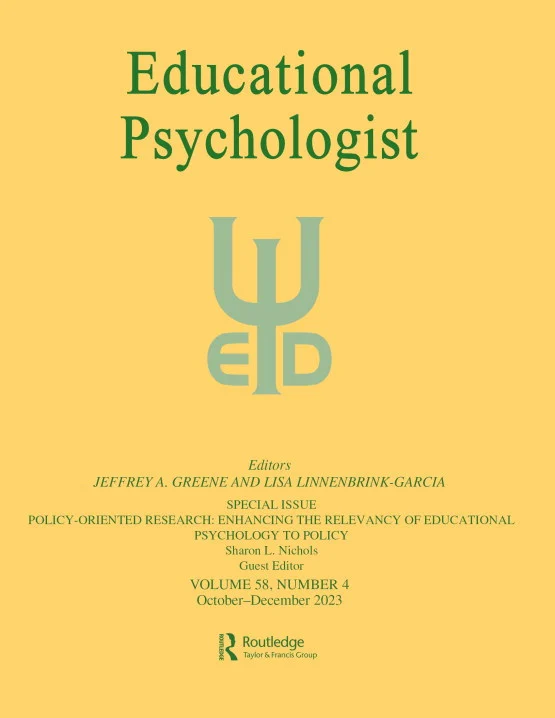Bridging gaps and moving forward: Building a new model for socioemotional formation and regulation
IF 14.3
1区 心理学
Q1 EDUCATION & EDUCATIONAL RESEARCH
引用次数: 27
Abstract
Abstract Collaboration is an important lifelong and career skill, and collaborative learning is a growing pedagogical practice. Students often struggle, however, to negotiate, manage conflict, and construct knowledge with other group members. These struggles can lead to negative interactions, resulting in negative emotions. Students in collaborative settings must be able to effectively regulate emotions at both the individual and group level. More research is needed on the emotions that develop in collaborative learning environments and how they relate to socioemotional regulation (i.e., the collective regulation of emotions in group settings) in order to provide a better conceptualization of emotions in small group learning. In this article, I explore ideas from traditional, social, developmental, and educational psychology, combining key elements from seminal theoretical models to introduce a new model for emotion formation and regulation in collaborative learning environments.弥合差距,向前发展:建立社会情感形成和调节的新模型
协作是一种重要的终身技能和职业技能,协作学习是一种日益发展的教学实践。然而,学生们常常在与其他小组成员谈判、处理冲突和构建知识方面遇到困难。这些挣扎会导致消极的互动,导致消极的情绪。在协作环境下的学生必须能够有效地在个人和群体层面上调节情绪。需要对协作学习环境中产生的情绪及其与社会情绪调节(即群体环境中情绪的集体调节)的关系进行更多的研究,以便更好地概念化小群体学习中的情绪。在这篇文章中,我探索了传统心理学、社会心理学、发展心理学和教育心理学的观点,结合开创性理论模型的关键要素,介绍了协作学习环境中情绪形成和调节的新模型。
本文章由计算机程序翻译,如有差异,请以英文原文为准。
求助全文
约1分钟内获得全文
求助全文
来源期刊

Educational Psychologist
Multiple-
CiteScore
19.10
自引率
3.40%
发文量
16
期刊介绍:
The Educational Psychologist is a scholarly journal dedicated to exploring the psychology of learning and instruction. Articles in this journal encompass a diverse range of perspectives, from examining psychological mechanisms to exploring social and societal phenomena related to learning and instruction. The journal publishes theoretical and conceptual articles, as well as reviews and meta-analyses, that significantly contribute to theory or advance the methods used to explore educational psychology. Emphasizing innovation and advancing understanding, the journal does not publish articles solely reporting the methods and results of empirical studies; instead, all submissions, including reviews and meta-analyses, must offer clear implications for advancing theory. In addition to regular articles, the journal features special issues that delve into important themes in educational psychology, along with focal articles accompanied by peer commentary.
 求助内容:
求助内容: 应助结果提醒方式:
应助结果提醒方式:


